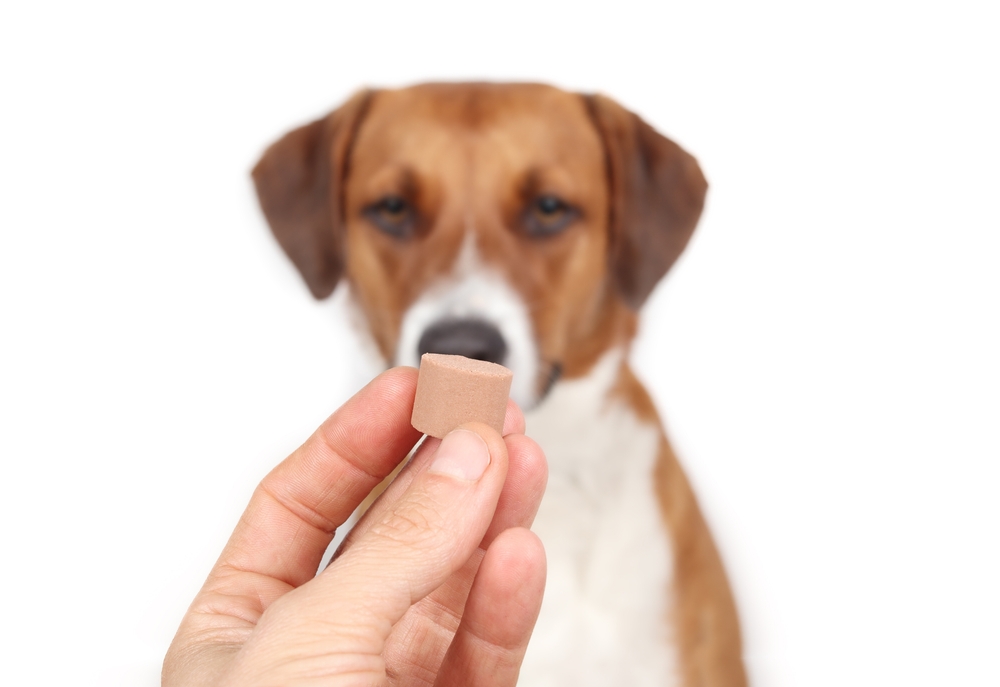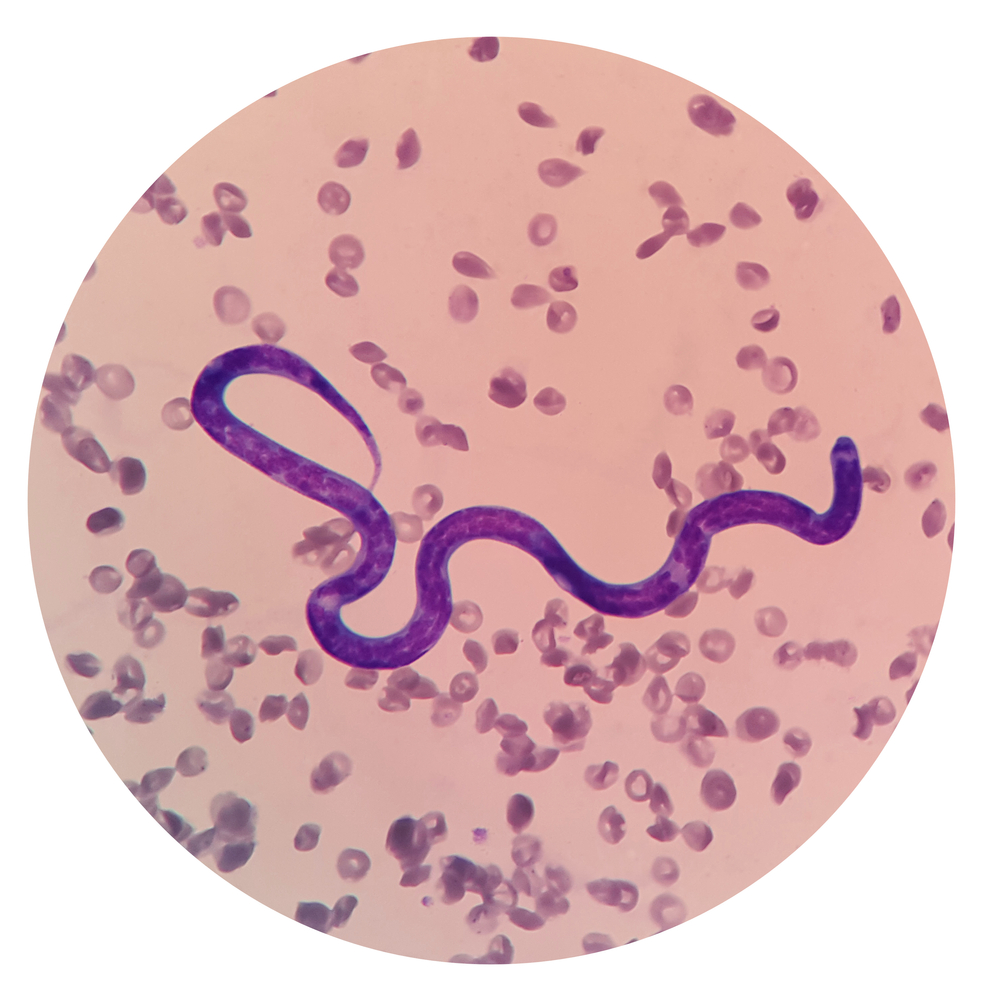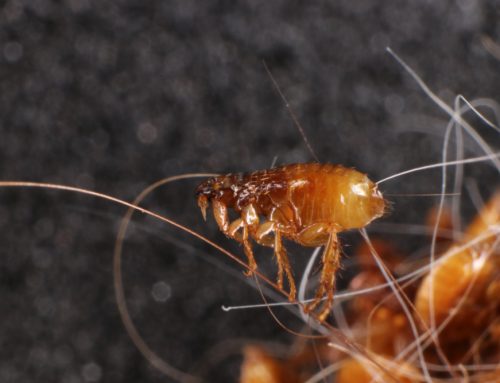Heartworm disease is a severe and potentially fatal condition that affects dogs and cats. This infectious disease is caused by the parasitic worm Dirofilaria immitis, which is transmitted to pets through an infected mosquito’s bite. If your pet is infected, their treatment can be arduous and costly. Our Neighborhood Veterinary Centers team describes heartworm disease and its signs and explains how you can protect your furry friend from this debilitating disease.
How pets contract heartworm disease
Heartworm disease is a prevalent infection in pets across the United States. Once thought to be a summertime ailment or only a problem in humid regions, heartworm disease is common year-round throughout the country. The heartworm life cycle begins when a mosquito’s bite infects a pet and transfers microscopic larvae—microfilariae—into their bloodstream. Once inside the new host, the larvae migrate through the body, eventually reaching the heart and lungs, where they mature into adult worms. In dogs, these worms can grow up to 12 inches in length and live for five to seven years, while in cats, the worms are typically smaller and live for two to three years.
Heartworm disease signs in dogs and cats
Heartworm disease signs vary depending on an infection’s severity and your pet’s species. Depending on your dog’s heartworm disease severity, their signs may include:
- Mild infections — In heartworm disease’s early stages, signs include coughing, fatigue, decreased appetite, and weight loss.
- Moderate to severe infections — During these disease stages, infected dogs show signs such as persistent cough, reluctance to exercise, fatigue after moderate activity, difficulty breathing, and heart failure. In severe infections, dogs can develop caval syndrome, a condition characterized by sudden collapse, labored breathing, and dark-colored urine, which requires immediate surgical intervention.
Cats’ heartworm disease signs are different from those of dogs. Depending on your cat’s heartworm disease severity, their signs may include:
- Acute infections — Coughing, vomiting, difficulty breathing, lethargy, and sudden collapse are common heartworm disease signs in cats. Cats may also exhibit signs similar to those of asthma or bronchitis.
- Chronic infections — Weight loss, decreased appetite, and lethargy can occur. Unlike dogs, cats can sometimes clear heartworm infections, but the inflammatory response can cause significant health issues.
Diagnosing and treating heartworm disease in pets
Heartworm disease is diagnosed through blood tests that detect the parasite’s antigens or microfilariae in the bloodstream. Annual testing is recommended for dogs. Because cats have a lower worm burden, diagnosis can be challenging. Cats often require additional tests, such as X-rays, ultrasounds, and antibody tests, to diagnose heartworm disease.
Treatment for heartworm disease is complex and involves drugs to kill both the microfilariae and adult heartworms. Antibiotics are often used to eliminate bacteria that live in symbiosis with the heartworms. In severe cases, adult heartworms have to be surgically removed. There is no safe treatment for heartworms in cats, making prevention the only way to protect your pet.
Heartworm prevention for your pet

Preventing heartworm disease is safer and more cost-effective than treatment. Several Food and Drug Administration (FDA)-approved medications are available for both dogs and cats. These medications include monthly oral tablets, topical treatments, and injectable formulations that can protect for 6 or 12 months.
Regularly administering your pet’s preventives and having them tested annually are essential to ensure that your furry pal is adequately protected from heartworm disease. Even pets on preventive medication should be tested annually to ensure that our team can detect breakthrough infections before they severely affect your four-legged friend’s health.
Additionally, you should ensure your pet’s environment is as mosquito-free as possible. Eliminate standing water in your yard, use pet-friendly mosquito control products, and keep your furry friend indoors when mosquitoes are most active, typically at dawn and dusk.
Heartworm disease is a severe threat to pets’ health, but when you ensure your furry pal is protected, this parasitic infection is entirely preventable. Regular veterinary exams, annual testing, and consistent administration of preventive medications can safeguard your pet from this dangerous parasite. While we can never eliminate mosquitoes from the environment, with the proper preventive measures, you can maintain your furry pal’s health. To ensure your pet is heartworm-free, schedule your furry pal’s appointment with our Neighborhood Veterinary Centers team.






Leave A Comment